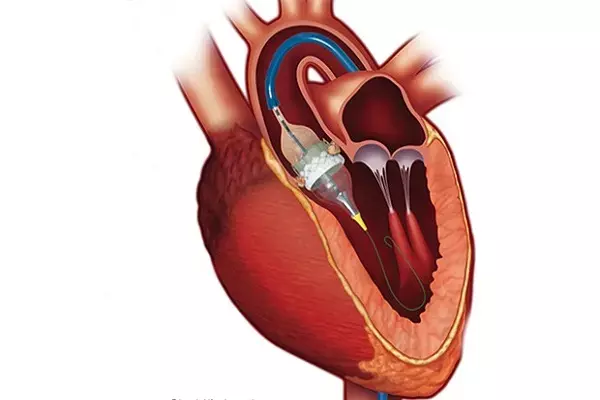- Home
- Medical news & Guidelines
- Anesthesiology
- Cardiology and CTVS
- Critical Care
- Dentistry
- Dermatology
- Diabetes and Endocrinology
- ENT
- Gastroenterology
- Medicine
- Nephrology
- Neurology
- Obstretics-Gynaecology
- Oncology
- Ophthalmology
- Orthopaedics
- Pediatrics-Neonatology
- Psychiatry
- Pulmonology
- Radiology
- Surgery
- Urology
- Laboratory Medicine
- Diet
- Nursing
- Paramedical
- Physiotherapy
- Health news
- Fact Check
- Bone Health Fact Check
- Brain Health Fact Check
- Cancer Related Fact Check
- Child Care Fact Check
- Dental and oral health fact check
- Diabetes and metabolic health fact check
- Diet and Nutrition Fact Check
- Eye and ENT Care Fact Check
- Fitness fact check
- Gut health fact check
- Heart health fact check
- Kidney health fact check
- Medical education fact check
- Men's health fact check
- Respiratory fact check
- Skin and hair care fact check
- Vaccine and Immunization fact check
- Women's health fact check
- AYUSH
- State News
- Andaman and Nicobar Islands
- Andhra Pradesh
- Arunachal Pradesh
- Assam
- Bihar
- Chandigarh
- Chattisgarh
- Dadra and Nagar Haveli
- Daman and Diu
- Delhi
- Goa
- Gujarat
- Haryana
- Himachal Pradesh
- Jammu & Kashmir
- Jharkhand
- Karnataka
- Kerala
- Ladakh
- Lakshadweep
- Madhya Pradesh
- Maharashtra
- Manipur
- Meghalaya
- Mizoram
- Nagaland
- Odisha
- Puducherry
- Punjab
- Rajasthan
- Sikkim
- Tamil Nadu
- Telangana
- Tripura
- Uttar Pradesh
- Uttrakhand
- West Bengal
- Medical Education
- Industry
Cardiac damage in patients undergoing TAVR ups death risk: Study

Germany: People who underwent transcatheter aortic valve replacement (TAVR) with higher-stage cardiac damage were more likely to die within 1 year, according to results from a retrospective multicenter study. The study was published in Catheterization & Cardiovascular Interventions on 21 August 2022.
A large number of severe aortic stenosis (AS) patients who undergo TAVR suffer from extra-aortic cardiac damage. Not many studies have investigated strategies for quantifying cardiac damage and dividing patients into different risk groups. Considering this, Jasmin Shamekhi, Department of Medicine II, Heart Center, University Hospital Bonn, Bonn, Germany, and colleagues aimed to provide a user-friendly simplified staging system based on the proposed classification system of Généreux et al. as a tool for more easy evaluation of the prognosis of patients undergoing TAVR. In addition, the researchers analyzed changes in cardiac damage after TAVR.
For this purpose, the researchers used pre- and postprocedural transthoracic echocardiography for assessing cardiac damage in patients who underwent TAVR at the Heart Center Bonn or Düsseldorf. According to the severity of their baseline cardiac damage, patients were assigned to the staging system proposed by Généreux et al.
A simple staging system was created based on the established system to facilitate improved applicability. Finally, a comparison was made of clinical outcomes between the groups, and changes in cardiac damage after TAVR were evaluated. The researchers included a total of 933 TAVR patients in the study.
Key findings include:
- A significant association was found between cardiac damage and 1-year all-cause mortality (stage 0: 0% vs. stage 1: 3% vs. stage 2: 6.6%).
- In multivariate analysis, cardiac damage was an independent predictor of 1-year all-cause mortality (hazard ratio: 2.0).
The researchers wrote in their conclusion, "cardiac damage in patients undergoing TAVR is associated with enhanced mortality. A simplified staging system would be useful for identifying patients at high risk for an adverse outcome."
Reference:
The study titled, "A simplified cardiac damage staging predicts the outcome of patients undergoing TAVR—A multicenter analysis," was published in Catheterization & Cardiovascular Interventions.
DOI: https://doi.org/10.1002/ccd.30368
Dr Kamal Kant Kohli-MBBS, DTCD- a chest specialist with more than 30 years of practice and a flair for writing clinical articles, Dr Kamal Kant Kohli joined Medical Dialogues as a Chief Editor of Medical News. Besides writing articles, as an editor, he proofreads and verifies all the medical content published on Medical Dialogues including those coming from journals, studies,medical conferences,guidelines etc. Email: drkohli@medicaldialogues.in. Contact no. 011-43720751


